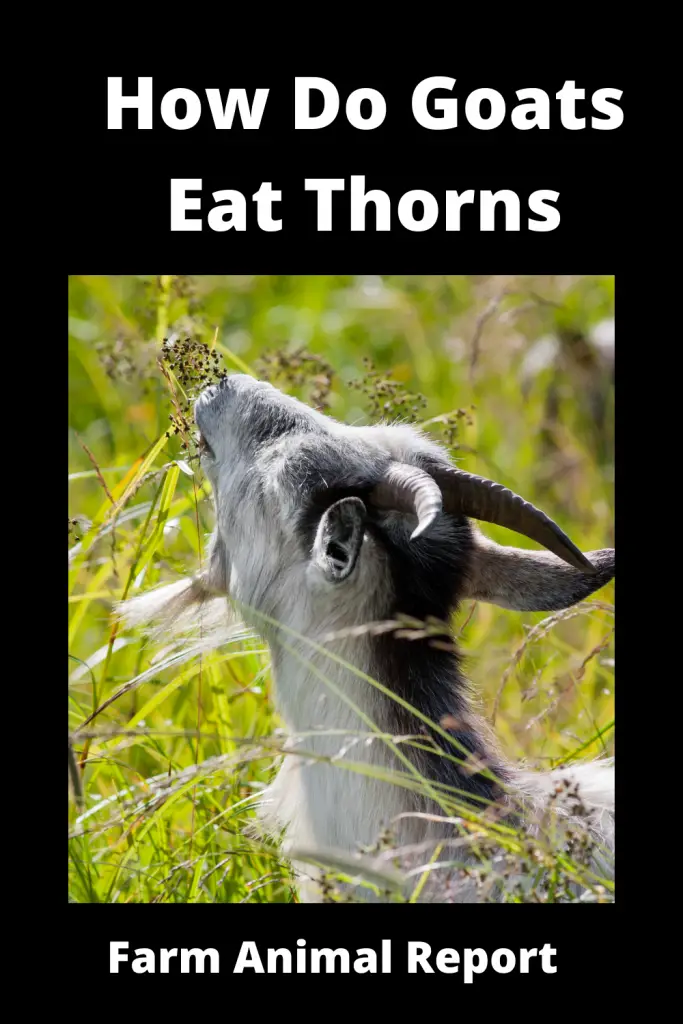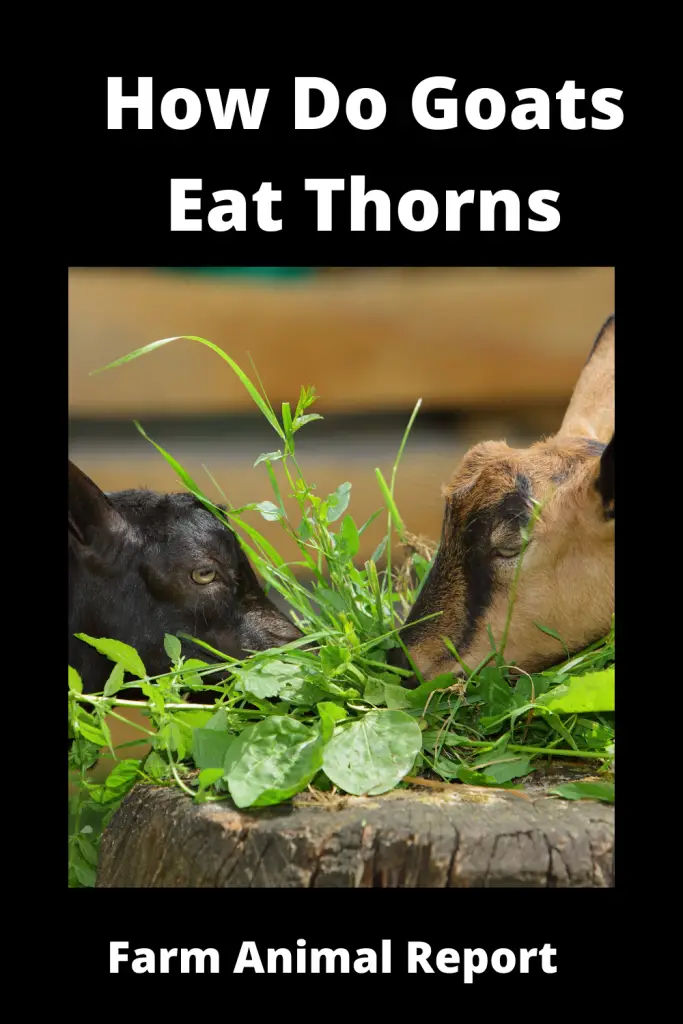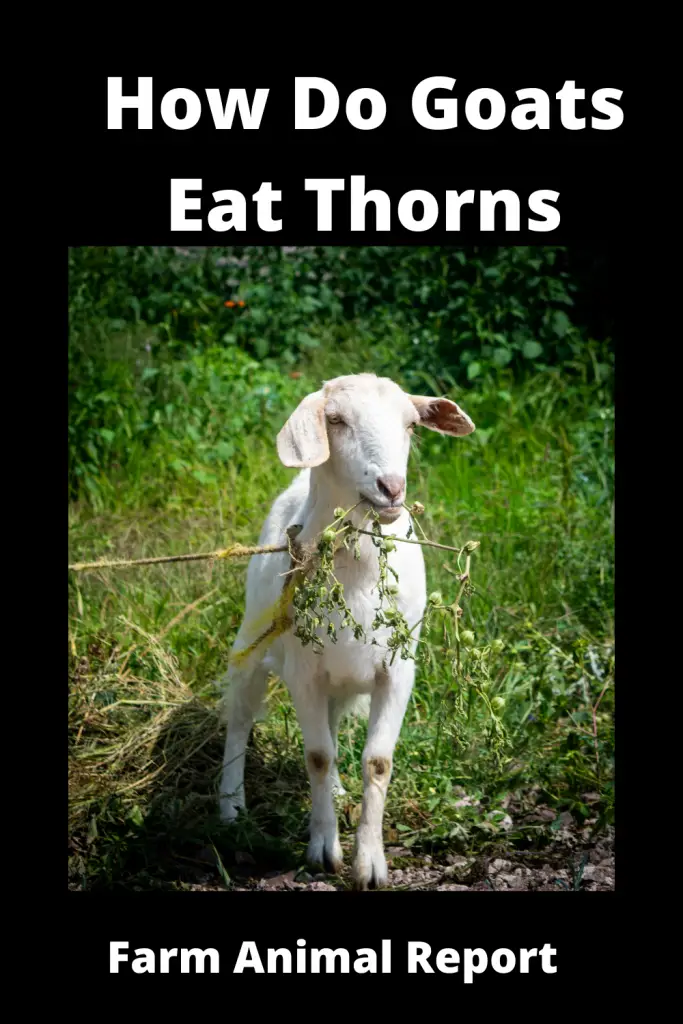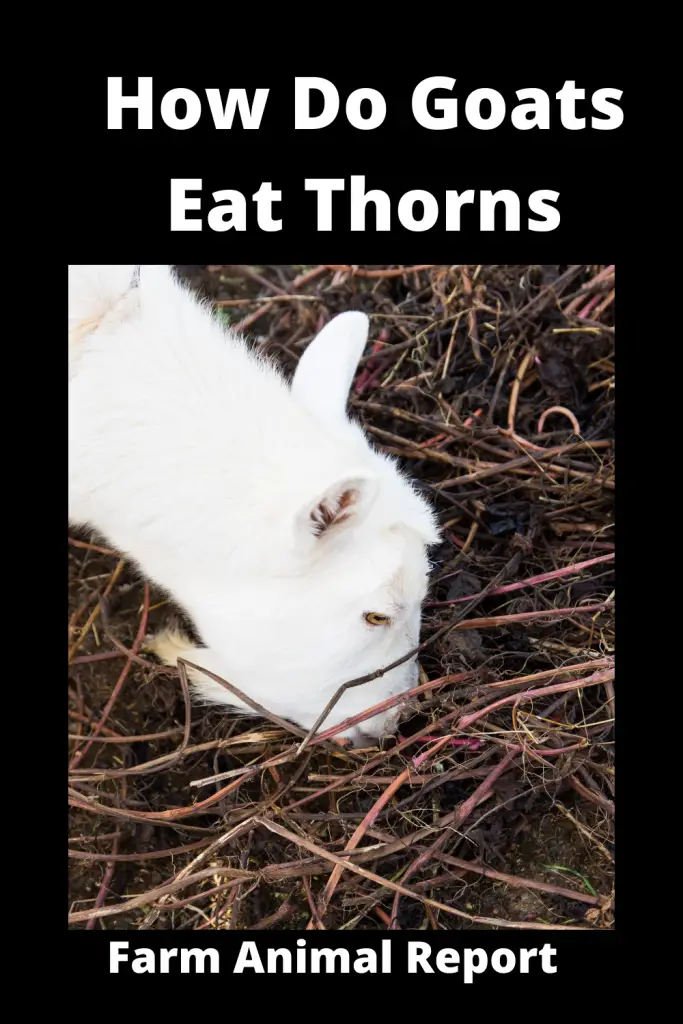Goats Eating Patterns are:
- Select young grass over clover;
- Prefer browsing overgrazing pastures, and eat more browse than other domestic ruminants;
- Eat a wider range of plant species than sheep or cattle;
- Prefer foraging on rough and steep land over flat, smooth land;
- Graze along fence lines before grazing the center of a pasture;
- Graze the top of pasture canopy fairly uniformly before grazing close to the soil level;
- Travel longer distances in search of preferred forage than other domestic ruminants.
Can Goats Eat Blackberry Bushes
See Amazons Resources on the Science of Raising Goats
Can Goats Eat Blackberry Bushes – Goats are always mouthing things to explore. They can mouth sharp and thorny objects without hurting themselves. A goat’s digestive system has also evolved so this isn’t such a big deal. They have very tough gums and digestive organs. They are cud chewers so they get two or more chances to chew their food. They have a four-chambered stomach that can handle roughage like tree bark so a rosebush is pretty much light to them. And they love rosebushes. Particularly ones you’ve gone to a great deal of trouble to plant. How Do Goats Eat Blackberry Bushes

What Goats Eat? Weeds to Meat – Plants
Goats are natural browsers and love most plants including weeds, thorns, shrubs, grasses, saplings, and nuisance trees. They also love eating wattles, eucalyptus, pittosporum. Some of the goats’ favorite treats are noxious weeds, such as blackberry, scotch broom, gorse, camphor laurel, sweet briar, lantana, capeweed, fireweed, ivy, and a variety of grasses.
Weed Seeds Are Not Spread / Feces ( Eating Blackberry Bushes)
In fact, goats will seek out and graze on weeds rather than desirable pasture species. Seeds are sterilized in the guts of the goats and will not be spread. There are a few types of plants that will make goats sick, particularly some ornamentals, including azalea and rhododendron.
Renting Goat Herds / Brush Removal ( Blackberry Bushes Grow Quickly
But before the goat herd arrives to work on your land, the goat herder will survey your property to make sure it’s safe for the goats (and that the valuable plants are safe too!) When the rental goat herd is on your land the goat wrangler will provide nutritional supplements and water. At times the goats may also receive some hay and protein supplements to help stimulate their appetite.
Goats Natural / Organic / Weed Control / 8lbs / Day
Goats are drawn to thorns, brambles, and bracken more than they are to grass. With four stomachs and the ability to eat about 8 pounds per day, they are well equipped to handle stickers and woody vegetation. Faster and cheaper than human labor, goats also nix the need for heavy equipment, diesel, or electric power, or poisonous chemicals.
Keeping the happy herd from wandering is something the lawn-clearing landowner will need to consider. If you’re renting goats, some franchises will use portable electric fences to keep the goats where you want them.
Others keep an employee and guard dogs on hand, full-time or part-time, as the job requires. If you intend to take on the task of goat ownership yourself, be sure to research what it takes to wrangle this particular species before embarking, and have a trained livestock veterinarian in the loop.

See Our Guide – 8 Ways to Make Money from Goat Farming
Berry Delicious / Brush Goats
Also known as “brush goats,” these cloven-hoofed companions have become a form of organic weed control, battling pesky plant infestations that confound the more experienced gardener. With enough time in a backyard or field, goats go head to head with nuisance vines, weeds, and problem shrubs, emerging victorious and with a full stomach.
Blackberry bushes in particular are a frustrating obstacle for landowners. The invasive fruit-bearing bushes are loaded with thorns, will throttle trees and grass, and are a headache to eradicate. Goats, on the other hand, love to eat blackberries and the connected shrubbery.
The best part is that this avenue is a win-win:
It involves no herbicides, eliminates blood, sweat, and toil, and gives the goats a free meal.
New Kids on the Block
Of course, as with any innovative movement, there are some drawbacks. Don’t expect Billy and his friends to know a thing about landscape design; they will eat what and where they wish to eat until their entire habitat is cleared.
Need More Than One / Company
Trimmed lawns with edged walks are not exactly in their repertoire. You will also need more than one goat for the task. It might seem generous to help the little ruminants avoid food competition, but goats are social animals and can be lonely without a herd.

If you’re planning on clearing large portions of land, a herd of 30 goats is not unusual; for a backyard, a smaller herd is fine. While goats can stomach a lot, there are some plants that are toxic to them. These will need to be cleared first before the herd is left to graze. Additionally, all goats can eat blackberry bushes without harm, but long-haired goat varieties might get tangled in the thorny brush.
Considerations to Be Given to Goats for Pastures
Goats are very active foragers, able to cover a wide area in search of scarce plant materials. Their small mouth, narrow muzzle, and split upper lips enable them to pick small leaves, flowers, fruits, and other plant parts, thus choosing only the most nutritious available feed.
As natural browsers, given the opportunity, goats will select over 60 percent of their daily diet from brush and woody perennials (multiflora rose, saplings, small deciduous trees, black locust, briars, brambles, sumac, privet, honeysuckle), and broadleaf plants (pigweed, dock, horseweed, plantain, lambs quarter) over herbaceous species such as fescue, bluegrass, orchard grass, crabgrass or bermudagrass.
The ability to utilize browse species, which often have thorns and an upright growth habit with small leaves tucked among woody stems, is a unique characteristic of the goat, compared to heavier, less agile ruminants.
Graze High Levels / Standing on Back Legs
Goats have been observed to stand on their hind legs and stretch up to browse tree leaves or throw their bodies against saplings to bring the tops within reach. Goats are more likely than other domesticated ruminant animals to select plant parts containing tannins. Goats even sometimes climb into trees or shrubs to consume the desired forage.
In spite of their grazing preferences, goats can be grazed on pasture alone. The feeding strategy of goats appears to be to select grasses when the protein content and digestibility are high but to switch to browse when the latter overall nutritive value may be higher.
This ability is best utilized under conditions where there is a broad range in the digestibility of the available feeds. It is is an advantage to an animal that is able to select highly digestible parts and reject those materials which are low in quality.

In a pasture, goats tend to graze from the top to the bottom of plants and do not like to graze near the soil surface. Therefore, goats will more uniformly graze a canopy than other ruminants will.
This behavior results in even grazing and favors a first grazer-last grazer system. This system might consist of using a goatherd as the first group and cattle as the last group. It is most appropriate with lactating does or growing kids whose nutrient requirements are high.
Goats have been observed to:
- Select to eat young grass over clover;
- Prefer browsing overgrazed pastures, and eat more browse than other domestic ruminants;
- Eat a wider range of plant species than sheep or cattle; except maybe deer
- Prefer foraging on rough and steep land over flat, smooth land; having to Reach for Food
- Graze along fence lines before grazing the center of a pasture; Look for the good items
- Graze the top of the pasture canopy fairly uniformly before grazing close to the soil level;
- Travel longer distances and look closer for preferred forage than other domestic ruminants.
Grazing time can be influenced by several factors, including the season of the year, the temperature and humidity, the topography of the land, the nature of the plant canopy, pasture availability, and social interaction between animals.
The season of the year, with changes in day length and intensity of sunlight, cause goats to graze in different patterns. At mean temperatures below 50 F, goats spend very little time grazing at night. At mean temperatures above 50 F, some grazing time will occur at night; and when mean temperatures exceed 77 F, one or more grazing periods will occur at night.
During hot weather, frequent movement of goats during the day will increase intake. The topography and size of the pasture also will have an effect on grazing time, as will forage availability and ease of forage removal.
Goat Breeds
| Goat Breeds | Meat | Dairy | Wool | |
|---|---|---|---|---|
| Boer | Alpine | Angora | ||
| Genemaster | Lamancha | Cashmere | ||
| Kiko | Nigerian Dwarf | Pygora | ||
| Kinder | Nubian | |||
| Myotonic | Oberhasil | |||
| Pygmy | Saaneen | |||
| Savanna | Sable | |||
| Spanish | Toggenburg | |||
| Tennessee Meat Goat | ||||
| TexMaster |
Goat Breeder Associations
| Goat Association | Location | Link |
|---|---|---|
| American Goat Breeders Association | United States | AGF |
| English Goat Breeders Association | UK | EGBA |
| Canadian Meat Goat Association | Canada | CMG |
| Minature Goat Breeders Association | Australia | MGBA |
| Boer Goats | South Africa | BGSA |
| American Boer Goat Association | United States | ABGA |
| World Goat Breeders Associations | List | WGBA |
Final Thoughts – Can Goats Eat Blackberry Bushes
Goats are known for being able to eat just about anything, but that doesn’t mean that everything is good for them. Blackberry bushes, for example, can actually be harmful to goats if they consume too much of the plant.
The problem with blackberry bushes is that they contain high levels of oxalates, which can bind to calcium in the goat’s digestive system and cause health problems. Too much oxalate can lead to kidney stones, intestinal blockages, and even death.
For this reason, it’s best to avoid feeding blackberry bushes to goats. If you have a blackberry bush on your property, make sure your goats don’t have access to it.
God Bless Greg


